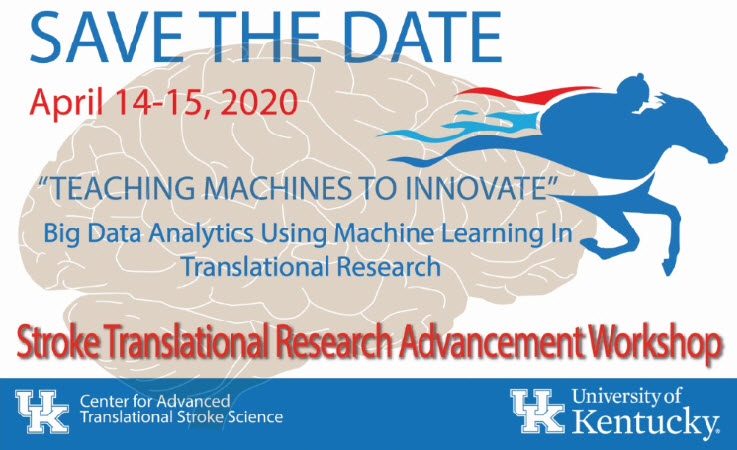The Center for Advanced Translational Stroke Science (CATSS)
The Center for Advanced Translational Stroke Science (CATSS) was established in 2015 to support basic and translational stroke research, to provide an interactive and collaborative environment for research development between research and clinical faculty (and strengthen interactions with other clinical departments) and to provide a support structure for successful funding of research in stroke at the University of Kentucky. The center includes more than 10 clinical and translational stroke researchers and provides several research cores to support its mission of improving our understanding of stroke pathophysiology, neurorecovery, and to discover new and effective stroke therapies.
Stroke Animal Surgery Core
The surgery animal surgery core consists of a 400 sq foot suite in the University’s Biopharmacy Research Building. All of the necessary equipment to perform multiple experimental stroke models on mice and rats including stereotactic devices, dissecting microscopes, laser Doppler flowmeters, anesthesia machines, surgical tools, etc. are available. The facility is supervised by a faculty director.
Stroke Rodent Behavior Core
The stroke rodent behavior core (RBC) serves as a central resource to conduct reliable and validated mouse behavior tests for stroke researchers to ensure that qualified and trained investigators have access to state-of-the-art behavioral testing instrumentation, and to provide assistance in the design, implementation and analysis of experiments that include behavioral measures in mice. The RBC is led by a faculty director, along with the assistance of a technician. The RBC offers behavioral testing of mice over a broad range of physiological and behavioral domains, including general health, cognitive, emotional, sensory, and motor function. The behavioral tests available in the RBC include: sleep-wake activity monitoring, functional observation battery, Morris water maze, radial arm water maze, novel object recognition, conditioned avoidance, Rotarod, grip strength, grid walk coordination assessment, balance beam walking, open field activity, and elevated plus maze. The RBC also provides assistance for the design and conduct of experiments, data analysis and interpretation, and provides training for the use of all equipment and software.
For More Information about the Stroke Translational Research Advancement Workshop Click Here!
Faculty:
Keith Pennypacker, Ph.D. - Interim Director, Center for Advanced Translational Stroke Science
Jill Roberts, Ph.D. - Director, Stroke Animal Surgery Core
